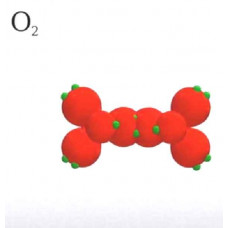The amount of oxygen consumed in the biochemical oxidation of dissolved organic matter.
Biochemical oxygen demand (BOD) is the amount of oxygen consumed for aerobic biochemical oxidation by microorganisms and decomposition of unstable organic compounds present in the water sample.
BOD is one of the most important criteria for the level of organic pollution in a water body and determines the amount of readily oxidisable organic pollutants in the water.
The analysis determines the amount of oxygen required to oxidise pollutants in a unit volume of water over a specified period of time (usually 5 days) at 20°C in the absence of light. The difference between the concentrations of dissolved oxygen in the water sample immediately after sampling and after incubation of the sample is calculated. Oxidation usually occurs within 5 days under normal conditions for ~70% of the readily oxidisable organic matter. Almost complete oxidation is achieved within 20 days.
For sources of centralised drinking water supply and waters used for fishing, BOD should not exceed 3 mg O2/l, and for waters used for agricultural and domestic purposes - 6 mg/l. Accordingly, the maximum permissible values for the same water bodies are 2 mg/l and 4 mg/l respectively.

